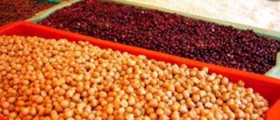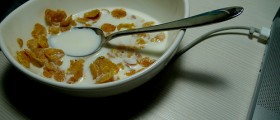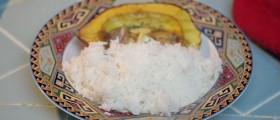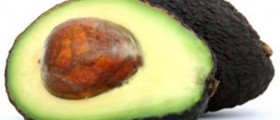
Dietary fiber is a term that refers to parts of plants that simply cannot be digested or absorbed in the gastrointestinal tract. There are many types of dietary fiber such as non-starch polysaccharides, oligosaccharides, lignin and some associated plant substances. Resistant starch is also considered dietary fiber because of its reluctance to digestion by different juices and enzymes inside the gastrointestinal tract.
Function and Sources of Dietary Fiber
Dietary fiber is a part of many different vegetables and fruits. It is classified into soluble and insoluble. While soluble fiber possesses increased viscosity and prebiotic properties, insoluble fiber is chemically inactive. Still, insoluble fiber is capable of water absorption and it boosts fecal elimination.
All the positive effects of dietary fiber originate from its numerous compound such as cellulose, inulin, chitins, pectins, oligosaccharides etc.
Almost all plants contain certain amount of dietary fiber. This amount practically depends on various types of plants. High amount of insoluble fiber is found in seeds and nuts, flax seeds, skin of most fruits, whole grains and certain number of vegetables. Soluble dietary fiber is, for example, a component of legumes, oat, rye and barley. Furthermore, this type of dietary fiber can be found in some fruits (bananas and pears) or vegetables (carrots and artichokes).
Health Benefits of Dietary Fiber
Dietary fiber passes down the gastrointestinal tract where it is, depending of the type, partially or totally fermented by gut bacteria. As a result of this process short chain fatty acids as well as gases are produced. So, thanks to the process of fermentation and its final products the body may benefit a lot. It is amazing how dietary fiber (particularly insoluble one) deals with constipation. This is achieved by increase of stool weight and decrease of gut transient time. The effects are even better if the person also drinks plenty of water. Furthermore, short chain fatty acids are great against proliferation of superficial cells of the colon and may efficiently prevent colon cancer. By regulating the process of defecation, dietary fiber also prevents several more intestinal disorders such as diverticulitis and hemorrhoids.
Regular intake of dietary fiber is also beneficial for maintaining optimal level of glucose in blood. This effect is used in people suffering from diabetes. One more positive effect of dietary fiber is reduction of serum cholesterol, especially low density lipoprotein (also known as 'bad cholesterol'). By improving blood lipid profiles dietary fiber prevents coronary heart disease.
And finally, dietary fiber has a satiating effect on appetite. Therefore, it is used in weight reduction and management.

















Your thoughts on this
Loading...